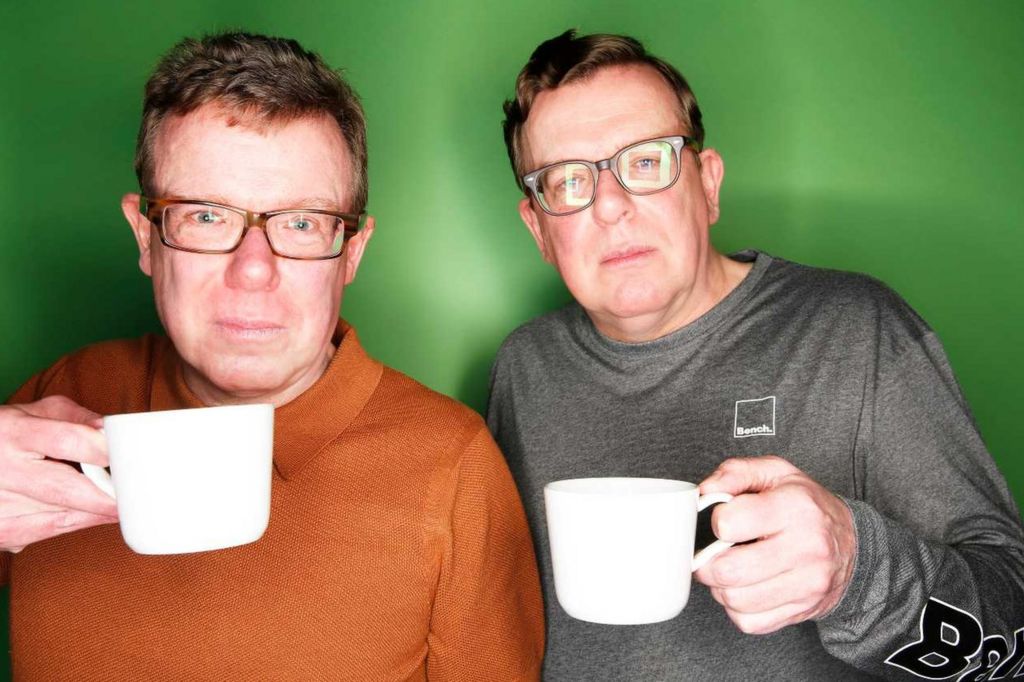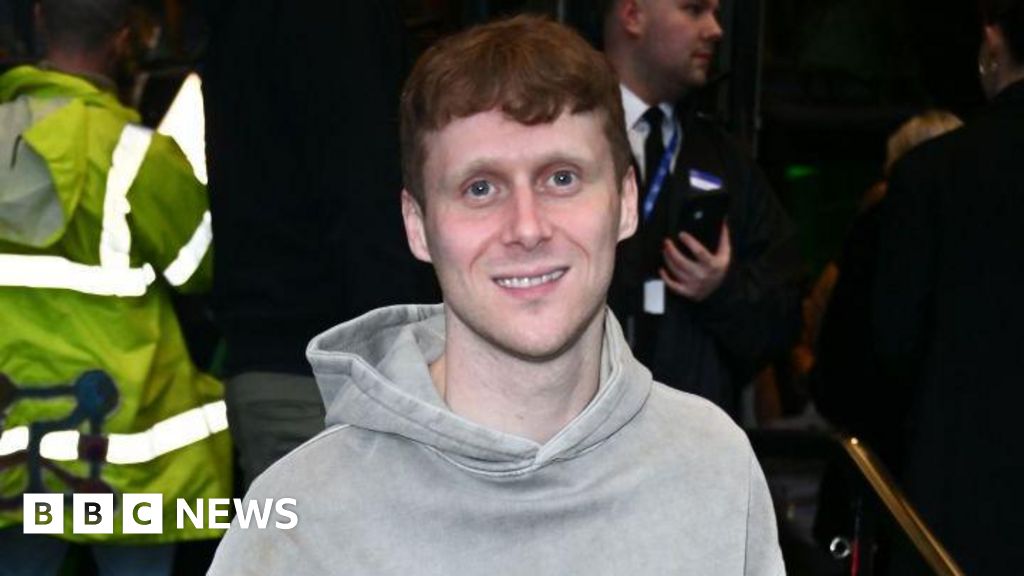ARTICLE AD BOX
By Martin Vennard
BBC News
 Image source, Murdo MacLeod
Image source, Murdo MacLeod
The Proclaimers have been making records for four decades
Having turned 60 this year, you could think that twin brothers Craig and Charlie Reid might have lost a bit of their lyrical bite. But they believe it is the UK - not them - that has become toothless.
The Proclaimers' latest album, Dentures Out, is peppered with punk energy and caustic commentary that many may not agree with.
"It's certainly the most political thing we've done for seven or eight albums," says Charlie, speaking from the brothers' hometown of Edinburgh, where they are avoiding the Fringe Festival crowds in an effort to avoid catching Covid.
"For the first time ever there's a constant theme in an album we've done. A lot of it is about nostalgia, about people looking back and perhaps looking back with rose-coloured glasses or not remembering at all," he adds, saying such a tendency is particularly strong in the UK.
The album's cover shows a pair of dentures in a glass next to a bed adorned with a union jack duvet cover.
"I think Britain has been diminishing in power and reach since World War Two, but I think that in the last 10 years Britain has nose-dived as regards its own self-worth and certainly in regard to its own place in the community of nations," Craig says, adding it is probably in "terminal decline".
The band performed their hit I'm Gonna Be (500 miles) on the BBC's Top of the Pops in 1988
The brothers believe Brexit reflects that. Craig claims some of the most prominent political parties have demonstrated a "total inability… to cope with what has happened".
But the prominent Scottish historian Prof Sir Tom Devine says nostalgia is understandable. "I don't think it is a peculiarly British trait," he says. "It happens when there's unparalleled change that might be challenging or alarming.
"There's clear empirical evidence that people have a right to be anxious," he adds, referring to the cost-of-living crisis, Covid and uncertainties around Brexit. Such changes to our way of life can induce a longing for the past.
The Proclaimers are well-known supporters of Scottish independence, something they still feel strongly about. "I think it is probably more likely now than it was before," Craig says of the prospect of a new public vote.
In the 2014 referendum, 55% of Scottish voters opted to stay as part of the UK, while 45% voted for independence.
Image source, Murdo MacLeod
Image caption,The cover for Dentures Out, much of which was written during Covid lockdowns, features a pair of dentures and a union jack duvet cover
Dentures Out is The Proclaimers' 12th studio album and the first single, The World That Was, is released on Friday. In it, they sing: "The world that was has now become a cause."
Talking about the UK's National Health Service and its role during the pandemic, the song references how "Thank U NHS is painted on a spitfire".
"The National Health Service is easily the greatest thing that any British government has done and the irony of it being painted on the side of a Spitfire plane, which was obviously one of the main killing devices that Britain used in World War Two - thankfully to defend us against the Nazis - was not lost on many of us," Charlie says.
In 2020, the Cambridgeshire-based Aircraft Restoration Company flew a Spitfire reconnaissance plane with "Thank U NHS" painted under its wings to mark the service's 72nd birthday. Thousands of names of people who helped during the pandemic - nominated by the public - were written on the plane. The company declined to comment on the song.
Image source, Getty Images
Image caption,The Spitfire was also used to raise funds for charities supporting NHS staff, patients and others
Sir Tom explains nostalgia "can be grounded in a historical reality, such as the defeat of the Nazis".
The brothers are looking back themselves, although not nostalgically, to their childhood in the song Sundays By John Calvin - a reference to the 16th Century French theologian whose puritanical form of Protestantism influenced Scotland. The song, like several others on the album, was written during a Covid lockdown.
"I certainly remember the Edinburgh and Scotland of the mid-to-late-1960s when really nothing happened on a Sunday," says Craig. "The swings in the parks were tied up on the Saturday night and you weren't allowed to use them.
"The song was suggested by that memory and the fact that Covid was going on at the time and every day almost felt like a Sunday."
Dentures Out was recorded at Rockfield Studios in James Dean Bradfield's native Wales
James Dean Bradfield of the Manic Street Preachers has lent his guitar playing to two tracks. The album's producer, Dave Eringa, has also worked extensively with the Manics and passed on Bradfield's desire to contribute. "I think he got what was going on," says Craig.
The brothers are currently touring, hence the desire to avoid Covid, and playing their older and new material.
"500 Miles, Letter from America, Let's Get Married, Sunshine on Leith, we always do them at every show," says Charlie. "The fact that people still want to hear them 30 years later is great for us and I suppose for the audience it connects them with their own past as well. But to do a show without any new songs would not be right because I think as writers we've got better as time's gone on."
Craig adds: "We've had a much longer run at it than we thought we would, so now we are at 60 we just want to do the best that we can and do it for as long as we can and to keep enjoying it."
Dentures Out is released on 16 September.

 2 years ago
42
2 years ago
42








 English (US) ·
English (US) ·